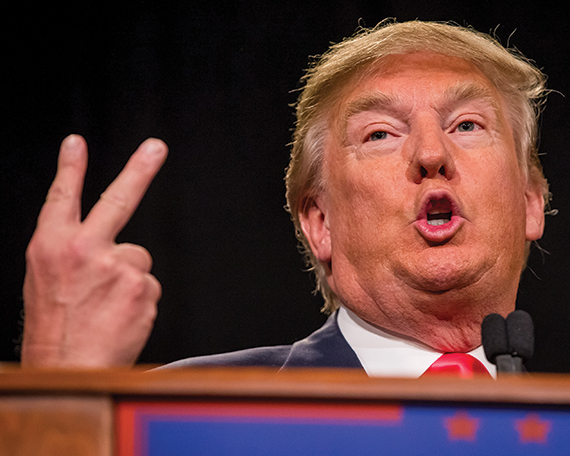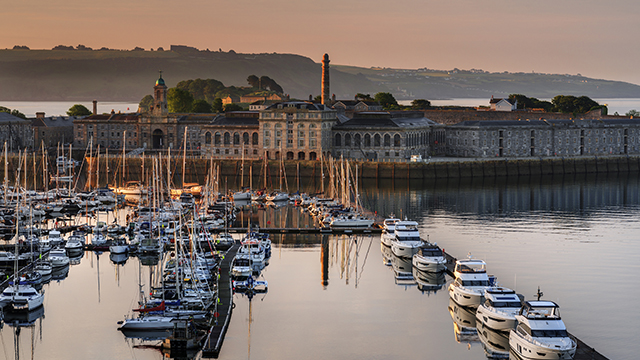What a Trump presidency means for business
Robert Guest, foreign editor at The Economist, assesses the implications for business of Donald Trump making it to the White House
When I was in Mexico recently, every conversation quickly turned to Donald Trump. It would be hard to exaggerate how much the previously excellent relations between Mexico and the US have deteriorated since Trump started referring to Mexicans as criminals and rapists.
“We used to think Americans liked us,” one businessman told me. “But then we saw the crowds cheering at Trump rallies, and we were not so sure.”
Some Mexicans try to laugh it off. A popular tweet announces that the Mexican government has agreed to pay for a wall on the border, as Trump demands. But not on the border he is thinking of. The accompanying picture shows the frontier as it was in the early 19th century, when Mexican territory included California, Nevada, Texas, Arizona and most of Colorado.
Robert Guest, foreign editor at The Economist, assesses the implications for business of Donald Trump making it to the White House
When I was in Mexico recently, every conversation quickly turned to Donald Trump. It would be hard to exaggerate how much the previously excellent relations between Mexico and the US have deteriorated since Trump started referring to Mexicans as criminals and rapists.
“We used to think Americans liked us,” one businessman told me. “But then we saw the crowds cheering at Trump rallies, and we were not so sure.”
Some Mexicans try to laugh it off. A popular tweet announces that the Mexican government has agreed to pay for a wall on the border, as Trump demands. But not on the border he is thinking of. The accompanying picture shows the frontier as it was in the early 19th century, when Mexican territory included California, Nevada, Texas, Arizona and most of Colorado.
Yet what would a Trump presidency mean for business? Given his frequent policy flip-flops, it is hard to say for sure. But his dig-a-moat-and-fill-it-with-alligators economic nationalism seems sincere – he has been saying these things for years.
Having promised so often to build a wall to keep Mexicans out, he will almost certainly try to do so. That would choke off trade between two of the most integrated big economies in the world. Far more US firms depend on supply chains that run through Mexico than most Americans realise. Many US manufacturers would be crippled if they could not get hold of parts made in Mexico.
Trump would scrap America’s existing trade agreements with other countries, too, and try to negotiate what he sees as better ones. This would involve slapping huge tariffs on imports from China and several other countries. The result would be higher prices for US consumers and the near-certainty of a trade war. The prospect does not seem to worry Trump at all. He imagines that America is so powerful, and that Donald J Trump is such a brilliant negotiator, that other nations will surrender pre-emptively. Good luck with that.
His fiscal plans are a joke. He vows to pay off the national debt in eight years while cutting taxes and not touching public pensions. How? By tackling fraud and waste, of course. He has no clear idea who his advisers might be, but he is thinking of hiring some of his relatives. Someone has to. He promises to bully corporate America, for example by calling up chief executives and threatening them with retaliation if they invest abroad (shipping American jobs overseas, he calls it).
I don’t like to be alarmist, but the last time America followed the protectionist path that Trump advocates, it sparked the Great Depression of the 1930s. With luck, a more sober Congress would be able to curb his excesses. But is that a risk America, or the world, can afford to take?











